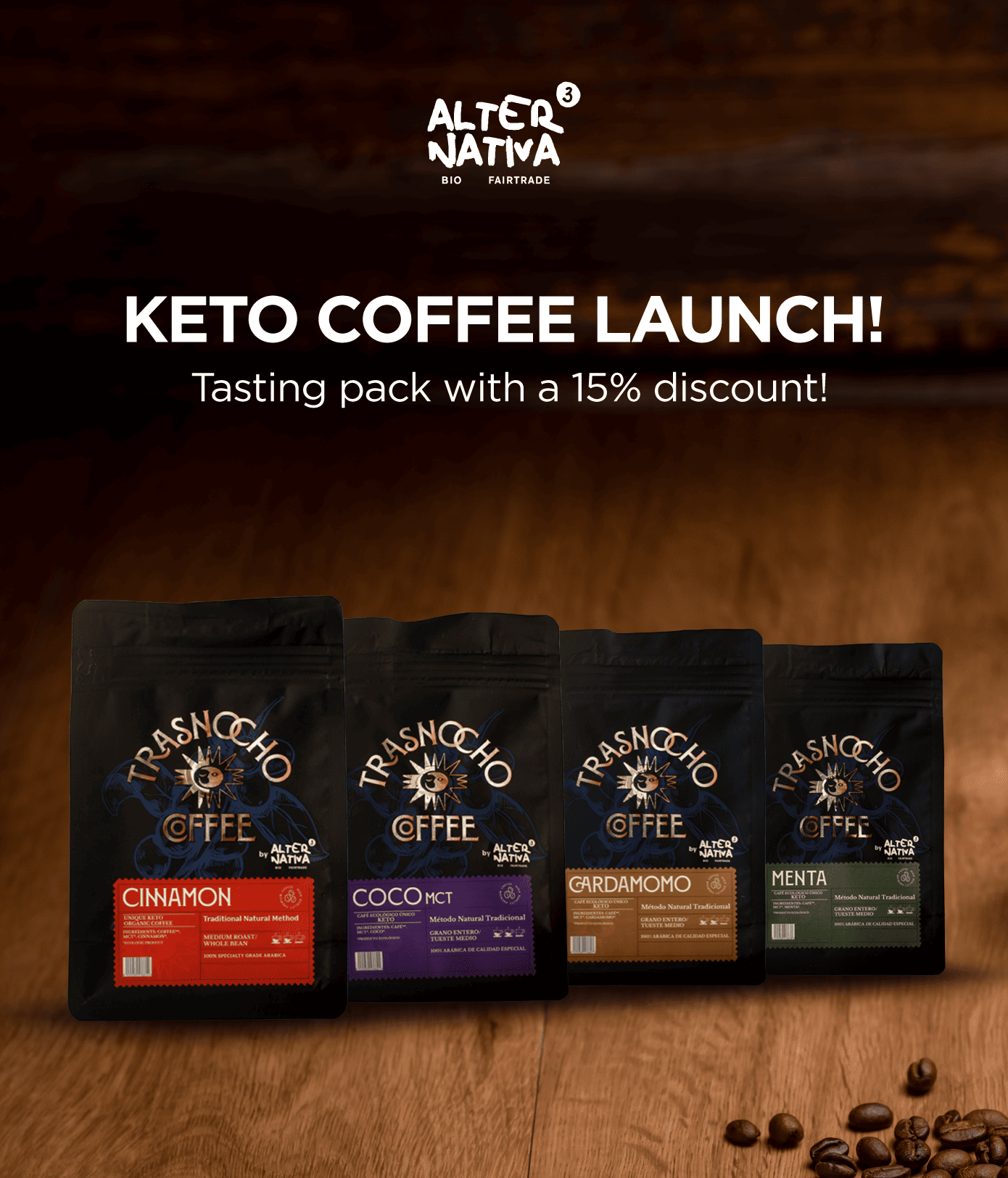Author: Eugenia González.
Sugar has such a bad reputation, doesn't it? And rightly so! But what if there was a "good" sugar, a sugar that would be good for your health, not full of empty calories and sweet and soft, for example, ideal for children? A sugar, for example, ideal to give to the little ones. Does such a sugar exist? If you read on, you will find out that it does.
Are you familiar with panela?
I'm sure you've seen it at some point, either in your local organic grocery shop or in an establishment where they sell Latin products. I was very interested in it, but I didn't know how to use it and I hadn't tried it. Then I learned a few things and now it is my favourite sugar.
Panela is typical of Latin America and is the most artisanal sugar there is. It comes from sugar cane and the production process could not be more traditional: mills are used to extract the juice from the cane, it is strained by hand and finally the liquid is evaporated until the crystals remain.
At first glance, panela may look like brown sugar, but it is not. In fact, it is a product that has nothing to do with it.
From white sugar... to brown sugar.
e are all familiar with white sugar: it comes from sugar cane or sugar beet. It goes through a very aggressive chemical process in which it loses all fibre, vitamins, minerals and trace elements. In the end, only sucrose remains.
Sucrose is not bad in itself, since we get energy from it, but since all the other substances that are good for the body have disappeared during the chemical process, we say that sugar provides "empty calories".
Sugar abuse is linked to type II diabetes, obesity, hypertension, cardiovascular diseases... In short, all this sounds familiar, doesn't it? And it is especially dangerous when it comes to children's health.
When you become aware of the dangers of white sugar to your health, the next logical step is to want to cut down on it. So people often switch to brown sugar.
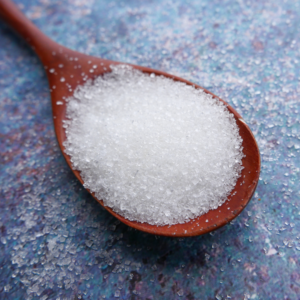
What is brown sugar?
Well, I've been fooled for years, you see. I thought it was a form of unrefined sugar (the equivalent of wholemeal bread, but in sugar). But the reality is very different.
Do you know what the brown sugar you buy in the supermarket is? In most cases it is white sugar to which molasses has been added to "paint" it. Yes, they add molasses to give it that little toasted colour that we associate with a whole or wholefood (i.e. healthier). And what is molasses? It is a liquid derived from sugar cane, the residue left over during processing.
To put it bluntly, brown sugar is white sugar that has been painted with a residue. It contains the same calories and has the same drawbacks as conventional sugar.
I am looking for a healthy sugar
After his disappointment with brown sugar, he began a journey through syrups, honeys and other more or less natural products.
But I missed that simple and easy gesture: adding a teaspoon of sugar to my coffee. Or making a recipe with the kids on Sunday afternoon and adding sugar without worrying if the result would taste the same with the new product or if I had to use the same amount.
And that is where we come across panela.
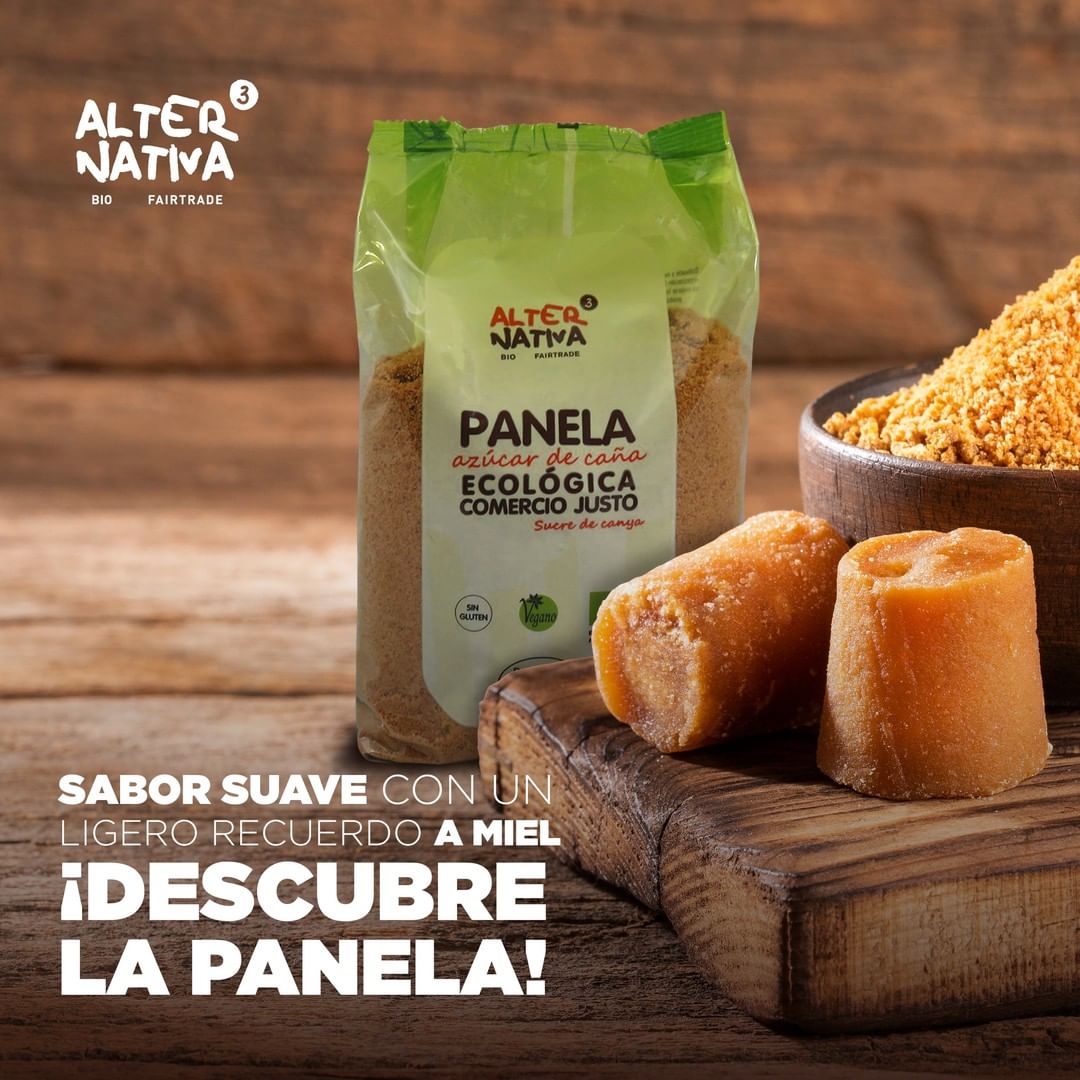
But what is panela and what does it taste like?
As I said at the beginning: it is the juice of the sugar cane, evaporated until it crystallises.
And nothing else. Seriously, that's all there is to it.
Natural and handmade: brown in colour (because it is not refined), it is grainy to the touch and has a very nice golden touch.
The taste is sweet, delicate, a little toasted. Some people find it reminiscent of honey, I find a touch of caramel.
What are the uses of panela?
Well, it serves the same purpose as sugar. In other words, you can substitute sugar for panela in any recipe.
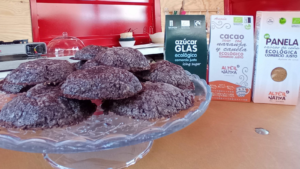
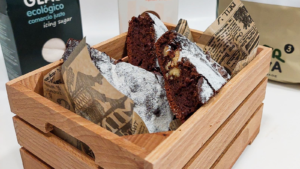
But, let's see: IS PANELA AS GOOD AS THEY SAY IT IS? I explain the facts about nutrients, calories and taste. Decide for yourself
Nutrients and health
Panela contains a number of beneficial nutrients for the body. In case you're curious, here's the full list.
For every 100 grams of panela we find:
- Fat 0 g
- Saturated fats 0 g
- Cholesterol 0 g
- Carbohydrates: 96 g
- Sugars 96 g
- Protein 0 g
Vitamins:
- A 3,7 mg
- B 7 mg
- C 30 mg
- D2 6,5 mg
- E 112 mg
- PP 7 mg
CONTAINS GLUTEN: No
SUITABLE FOR VEGAN DIET: Yes
For example, the table tells you that 100 grams of panela contains 30 mg of vitamin C. The recommended daily allowance of vitamin C for an adult is 65mg and 25mg for children aged 4-8 years. If panela has 30mg, it is a very healthy food, isn't it?
But, look carefully, they tell you that you will find that amount of vitamin in 100 grams of panela. Do you know how much sugar that is? Well, I'll tell you: 100 grams is 8 tablespoons... a day.
In other words, panela is not a food, but a condiment. It contains vitamins, trace elements and minerals, yes, but in small quantities.
For example, 100g of papaya provides 100% of the amount of vitamin C an adult person needs each day. That is the difference when assessing the nutritional values of a condiment or a fruit.
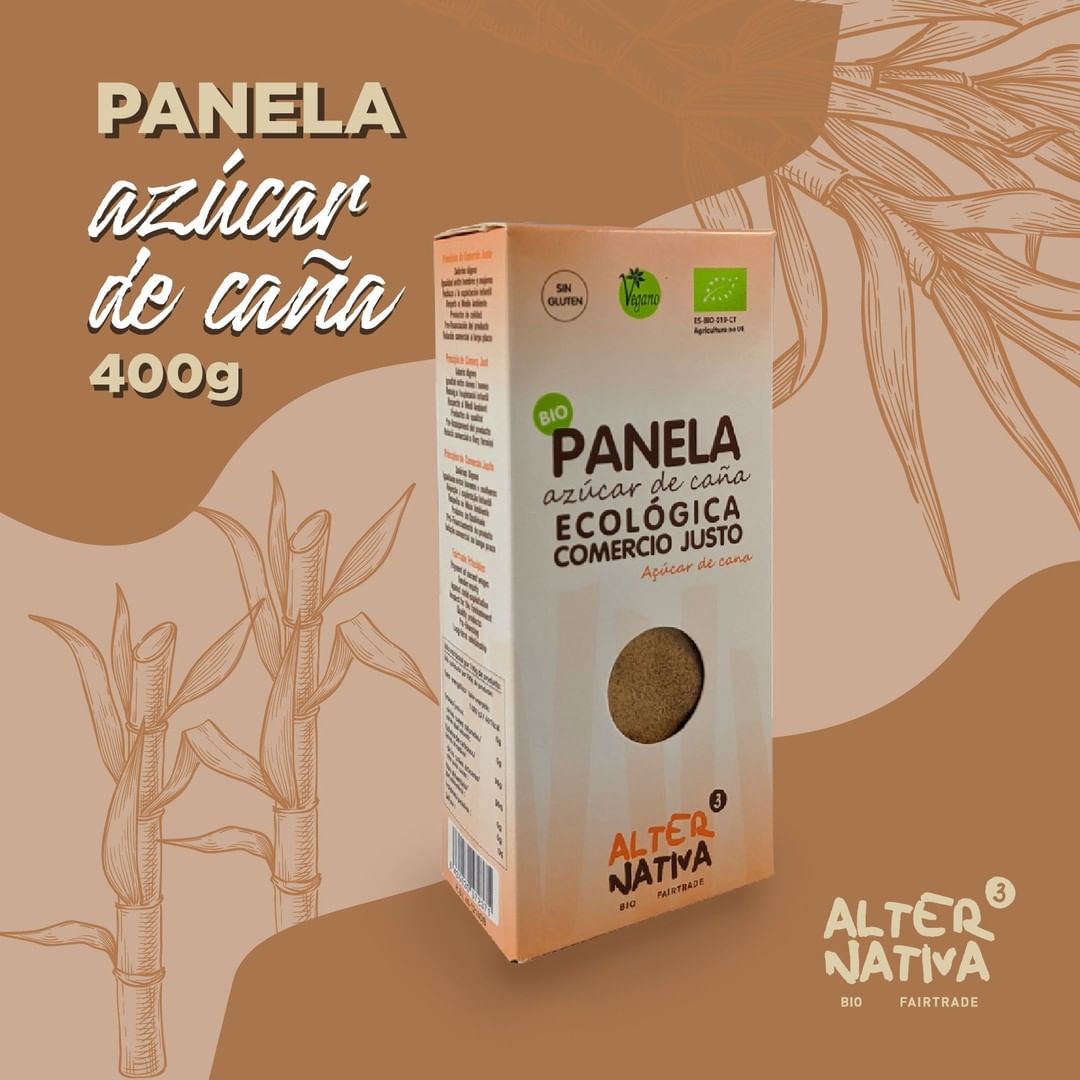
So why is panela healthier?
Because it contains no chemicals.
All refined sugars may contain sulphur dioxide, phosphoric acid, chemical bleaching agents, viscosity reducers... As you know, panela does not undergo any refining or other chemical processes.
It is a 100% natural product.
Secondly: How many calories are there in panela?
100 g of white sugar provides 387 calories. 401 calories for panela.
But... its sweetening power is much greater, so you'll drink less without realising it.
I tell you from experience: to sweeten a cup of coffee I use one teaspoon of sugar, but using panela, half a teaspoon is enough.
In other words, I consume half as many calories.
But then: is panela used in the same way as conventional sugar or not?
At home, we use it in the same way as sugar, but with the cool difference I was telling you about: as it sweetens more, you have to use less of it.
I am not saying that panela is sweeter or cloying, but that with less quantity you can sweeten just as much.
What are you going to do from now on?
Nobody can deny that panela is sugar. But:
- is a natural, chemical-free food,
- which stores all its nutrients,
- it has a higher sweetening power than white or brown sugar
- And if it is organic and Fair Trade (like AlterNativa3), then you can be sure that it protects people and the planet.
Yes, I want to try organic Fairtrade panela.
I would like to avoid all sugar at home, but I find it difficult. The kids love it and, honestly, so do I. I find it hard to imagine coffee without sugar or making desserts and cakes without adding some kind of sweetener. I find it hard to imagine coffee without sugar or making desserts and cakes without adding some kind of sweetener.
That's why we've switched to panela. If you've tried it, you know it's very tasty.
If you haven't tried it, I invite you to try one of the tempting recipes on the Blog.
I'll share my favourites with you:
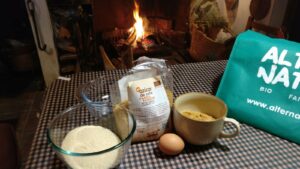
- Oatmeal bars: ideal snack for school and office. We add chocolate chips. https://alternativa3.com/barritas-de-avena/
- This recipe is the bomb: chocolate coulant (it's easier to make than it looks). Very rich (a lot). https://alternativa3.com/coulant-de-chocolate-y-cafe/
- And this one surprised me a lot: marzipan. Organic, Fair Trade and homemade.
We tried it last Christmas and it triumphed. https://alternativa3.com/receta-mazapan/
A challenge: make a recipe with panela and don't tell them that it contains this "new" sugar. I bet you anything that no one will notice.
But you know that you are giving them a natural, ethical, sustainable product... and a much healthier one. Let me know how it goes
